#endowed asians
Text
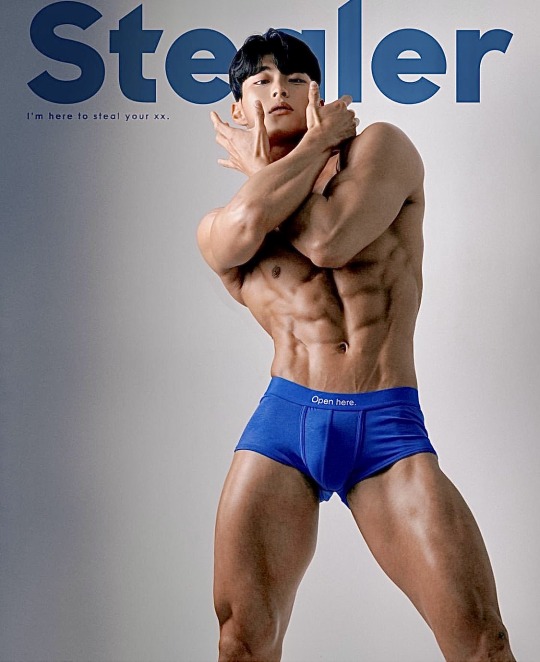
이이공륙일삼
Boys just wanna be...
#승찬#men in blue#endowed asians#college aesthetic#stealer body profiles#korean physique#extreme endowment#abs for caressing#guys with thighs#muscles and underwear#korean muscle model
31 notes
·
View notes
Text
Jupiter Influence Among Korean Actors
Over the years, I have noticed a distinct pattern in the Korean entertainment industry, where most stars considered to be icons have strong Jupiter influence in their charts. Korean general public prefers celebs with a graceful and elegant image, who also have "duality" (they're cute but fierce) and Jupiter natives are endowed with these charms.
I had already mentioned female Kpop idols & Jupiter influence on a previous post, so, this post will focus mainly on Korean actors.
Song Hye Kyo is arguably the most successful Korean actress of all time. She has been in the top billing for over 20years at this point.
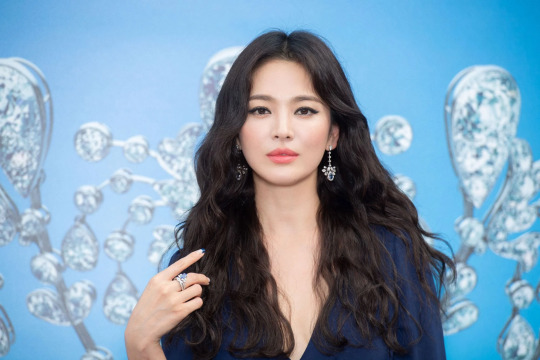
She has Hasta Moon (I had mentioned in another post about how Hasta women are revered for their femininity and grace), Uttarashada Ketu (UA gives one a glamorous image) and Vishaka Mercury Atmakaraka.
Atmakaraka is what signifies our soul's purpose, hers lies in the Jupiterean nak of Vishaka.
In fact, its very common for Korean actors to have their atmakaraka or amatyakaraka in a Jupiter nakshatra.
2. Park Minyoung has Venus in Purvabhadrapada as her atmakaraka

She rose to fame playing a young girl who disguises herself as a guy in order to attend school in ancient Korea. It is her family's dire circumstances that push her to attend school in order to find work. This whole drama is very Jupiter coded and the majority of the cast have strong Jupiter placements as well.
Her most popular drama is What's Wrong With Secretary Kim where she plays the secretary to a CEO who is almost inept without her micromanaging his life. I've noticed that many Jupiter women tend to be in this position where, in whatever relationship dynamic, others don't know what to do in her absence because she often single-handedly runs the whole place and makes it look easy and only in her absence do they realise that its far from easy.
3.Kim Ji-won is Punarvasu moon

One of her best known roles is that of Choi Ae-ra in Fight My Way, which I would say is a very typical Punarvasu character. Punarvasu's enthusiasm, almost childlike behaviour and charm can fit the description of a quintessential Asian romcom protagonist and Choi Ae-ra is a very good example of the same. Her rise from the bottom rung of the ladder to working hard to get where she is, is also a very Jupiterean tale (since Jupiter moon natives go through their Saturn mahadasha as young adults).
4.Kim Go-eun has Punarvasu mercury & ketu

Kim Go-eun's first ever starring role was as Eungyo in the movie of the same name.
It is the story of a teenage girl who becomes the object of desire for a 70yr old poet. The movie is very Punarvasu coded imo. In fact, regarding her casting, the novelist, whose book was adapted to the film, had this to say:
"She was perfect for the forever virgin and forever young image that Eun-gyo symbolizes."
This is literally the embodiment of Punarvasu energy which makes the native simultaneously sensual and innocent.
5. Gong Hyo Jin has Vishaka moon atmakaraka and mercury in Purvabhadrapada amatyakaraka

Her character in When the Camellia Blooms is very Jupiter coded. Jupiter energy can often be manifest as a kind of innocence and naivete and a tendency to be a goody two-shoes.
6.Shin Min-ah has Saturn in Vishaka as amatyakaraka

Her most well known role would be that of a doctor in Hometown Cha Cha Cha, in which she plays a person who refuses to compromise on her principles/ethics to get ahead in her career and has to end up leaving Seoul for a small town. This is again, very Jupiter coded because Jupiter influence makes natives very righteous and possess a strong sense of integrity.
7.Han So hee is Vishaka sun
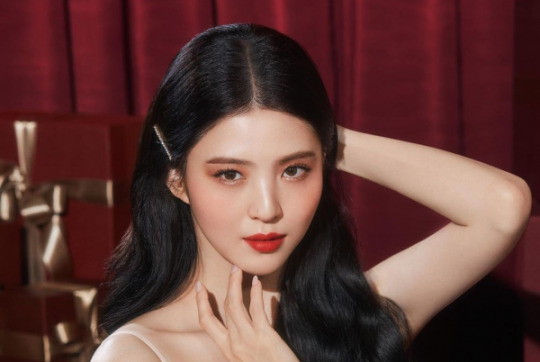
She was recently in an MV for Jungkook's song 'Seven' which features a quarrelling couple. I've often noticed that with many famous Vishaka women, fighting with their partner, often publicly seems to become attached to their public image. This could also apply to their relationships becoming controversial in general. Miley Cyrus, Beyonce, Katy Perry, Lana Del Rey, Jennie etc all have their luminaries in Vishaka with the exception of Lana who has a Vishaka stellium and they've all had relationship drama that caught public attention in a major way.
The role that catapulted Han So Hee to fame was that of a married man's mistress in the drama The World of the Married👀
8. Jung So-min has Purvabhadrapada Sun & Venus (atmakaraka), Punarvasu Moon (amatyakaraka)

in Because This Is My First Life, she plays a broke writer who despite being a good daughter is not appreciated by her family at all, and despite being good at what she does, faces trouble in her workplace and is overall just going through a not so good time . As I've said before, Jupiter natives go through their Saturn Mahadasha as young adults and this phase is a difficult one where they have to work very very hard to get things done and make any kind of progress. Most K-dramas that focus on the adversities of life, as experienced by a 20 something probably has a Jupiter dominant native as its protagonist.
in general, the reason why Jupiter dominant men & women dominate Korean entertainment, be it music or dramas, is because of the kind of content that Korean entertainment focuses on and the kind of people that the Korean public chooses to support. K-Dramas are known for their complex plots, often focusing on people at conflict with their values and ideas, struggling with their conscience, facing life's challenges and overcoming adversity; class struggles, portrayal of wealth/lack of it, rising to the top, underdogs emerging as winners etc. These are inherently Jupiterean.
Even with Korean music, it has a unique system in place where idols have to "train" for several years before they make their debut. Being hardworking and being an "ace" who excels in several areas is prided on in Korea; in such a culture, it makes sense why Jupiter dominants emerge as the ones on the very top of the food chain.
Now, we'll talk about some male actors😋😌
Lee Minho has Mars in Punarvasu & Mercury in Punarvasu (his atmakaraka & amatyakaraka)
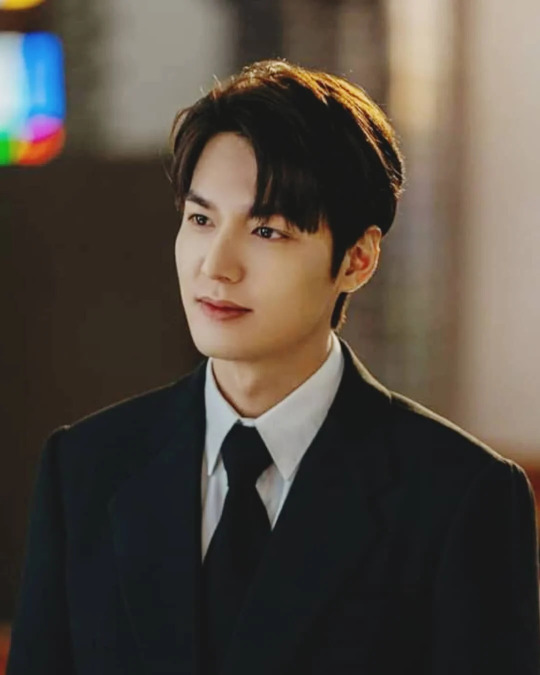
Honestly, his entire filmography is very Jupiter coded 🤣 The role that made him a household name was that of rich, spoilt heir to an immensely wealthy family who is the most popular guy in school and leader of his rat pack.
His most successful role is that of a King in the drama The King: Eternal Monarch which is about an ancient Korean emperor who time travels through a portal into modern-day Korea. Both the fact that he's playing nobility as well as the fact that the drama features time travel/alternate reality esque things makes it VERY Punarvasu coded.
(Punarvasu's element is ether and its deity Goddess Aditi is the Mother Goddess and creator the universe itself, many time travel/movies about the nature of reality feature Jupiter natives)
The drama co-stars Kim Go-Eun, who I have already mentioned above as a Punarvasu girlie🥰
2. Gong Yoo is Punarvasu sun (amatyakaraka)
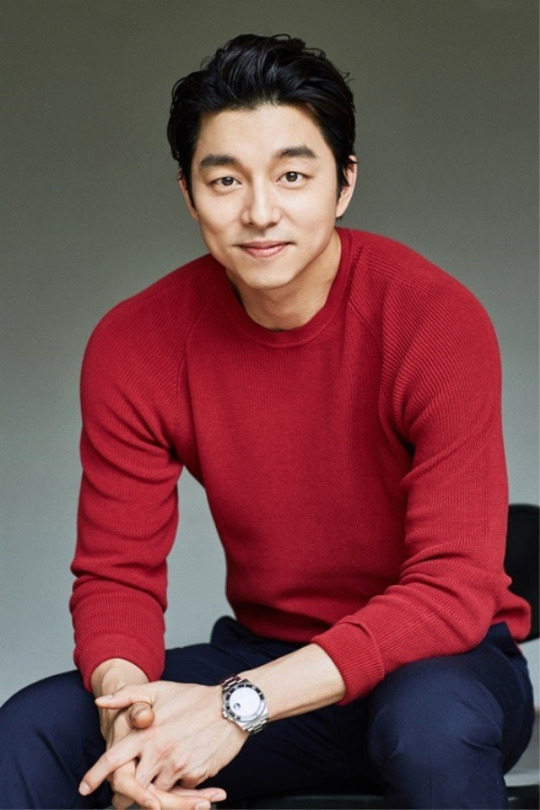
He starred in the movie "Silenced" which was based on a horrifying true story where he plays a teacher at a school who tries to stand up for and protect differently abled children who are routinely subject to extremely cruel and abusive treatment at a boarding school.
Punarvasu natives are known for standing up for others, especially those who do not have a voice/who are unable to stand up for themselves. These natives have a strong sense of justice and empathy and do not think twice about questioning authority.
His character in Coffee Prince is one which made him a household name and in this drama, he plays a chaebol heir who falls for a young guy who is actually a woman disguising herself as a guy 💀I feel like Jupiter men have at least one movie/show in their filmography that is very queer coded (ex: Keanu Reeves, Punarvasu Moon with My Own Private Idaho)
His most well known character is that of Goblin in the drama of the same name, where he plays an immortal who seeks salvation. Very Punarvasu coded.
This is just a personal observation but I've noticed how many Punarvasu men have an androgynous vibe 🥵
3.Kim Woo Bin is Punarvasu sun (atmakaraka) and mercury
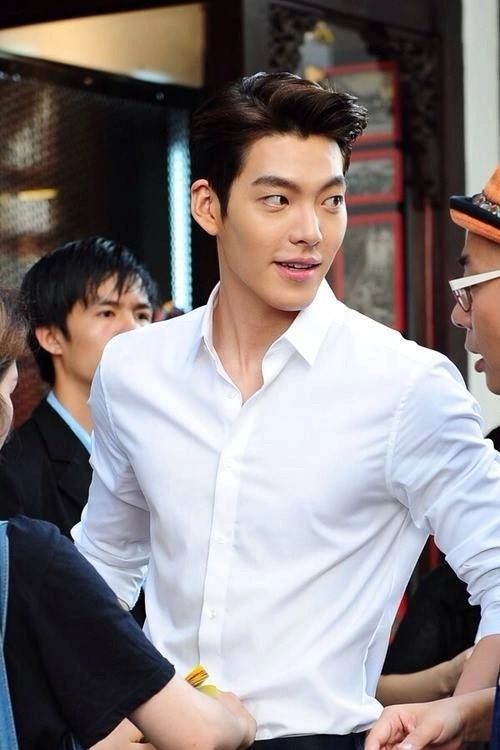
His breakout role was that of a wealthy chaebol heir in the drama, The Heirs.
Playing the CEO's son or the CEO, who is initially arrogant and then faces different trials and tribulations and ultimately redeems himself is a common Kdrama trope and I've noticed that the actors picked for these parts the most tend to be Jupiter-dominant.
4.Song Joong Ki has Vishaka moon & saturn (his atmakaraka)
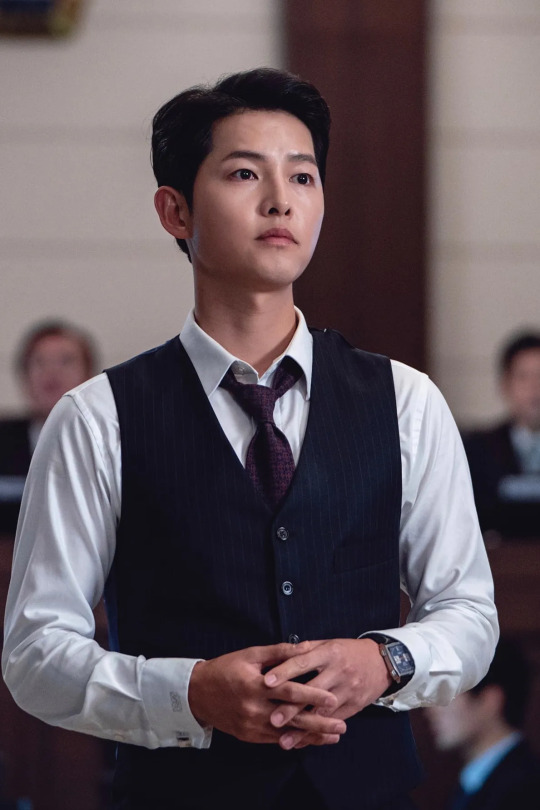
Vishaka is a rakshasa gana nakshatra and I'd previously observed how many mafia movies feature rakshasa gana natives as the main leads. Joong-ki's Vincenzo sees him play a mafia lawyer.
His character is Arthdal Chronicles (featuring fellow Jupiter girlie, Kim Ji Won) is also very Jupiter coded. Its about the birth of civilization and life in the ancient world. Joong Ki plays the leader of his clan.
5.Park Seo Joon has Purvabhadrapada moon (his amatyakaraka)

He is one of those actors who plays himself in every show/movie he does. This means all his characters are charming, slightly awkward or a little dumb, but good natured and caring individuals who go above and beyond for others. This is like a quintessential Jupiter man trope.
Especially his character in Fight My Way, is VERY Jupiter coded and features fellow Jupiter native, Kim Ji-Won.
A slightly stupid but endearingly adorkable guy who works a low end job and trains to be a boxer whilst looking out for his friends and loved ones? Especially his whole side arc with his ex gf on the show is such a Jupiter guy thing; to forgive a woman and be there for her even though she never cared for him and only kept him around because he was sooo nice to her and did everything for her. I've seen this happen with many Jupiter guys because as Claire said in her video these are the nice guys who women keep in the friend zone because even though they're perfect and extremely courteous, women don't feel like they could be a serious partner.
His character in Itaewon Class explores Jupiter in a different way. He is a struggling businessman who is engaged in a long drawn out battle with a chaebol and finally emerges victorious in the end. Despite the chaebol's petty and below the belt tactics, Seo-joon's character always took the high road and held on to his principles and conducted himself with integrity. Jupiter natives are almost always destined to be the bigger person.
6.Park Bogum has Mercury in Punarvasu as his atmakaraka
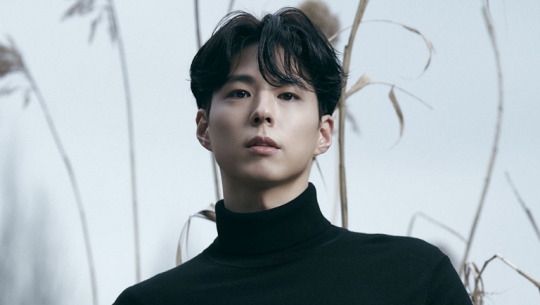
He rose to fame for playing a motherless prodigy on Reply 1988. His character was a typical Jupiter one; he's very talented, successful and recognised for the same but he takes no pleasure in it and does not really indulge in the privileges it offers him.
His most famous role would be that of a Prince who falls in love with his eunuch (who is actually just a woman pretending to be a eunuch) in the drama Love in the Moonlight. Like I said before, Jupiter guys have at least one queer coded project in their filmography lol.
7.Park Hyung shik has Sun & Mars in Vishaka (his atmakaraka & amatyakaraka)

His most famous role is that of a CEO in the drama Strong Girl Bong Soon.
8.Yoo Ah In has Venus in Vishaka as his atmakaraka and Jupiter in Purvabhadrapada as his amatyakaraka

His character in the movie Burning represents the dark side of Jupiter men.
His drama Chicago Typewriter features him reincarnating in present day Korea after initially living in the 1930s.
Jupiter influence is visible in movies/shows that have tropes of alternate reality, reincarnation, time travel etc.
#sidereal astrology#vedic astro notes#astrology observations#vedic astrology#astro observations#astrology notes#nakshatras#astro notes#astroblr#astrology#jupiter#punarvasu#vishaka#purva bhadrapada#korean actos#kpop astrology
241 notes
·
View notes
Text
"In the name of keeping students safe, you bring the NYPD on campus to break up a peaceful encampment, thereby endangering hundreds of student protesters—many of whom are Jewish students and students of color—and the campus community at large. Given the NYPD’s racist record, the fact that you would subject Black, Latinx, Arab and South Asian students to police repression suggests that you are either unaware or indifferent to the trauma our communities have experienced with the police. And your administration’s decision to evict students from their dorms, strip them of their meal cards, and have them charged with trespassing is nothing less than vindictive. After taking their tuition and fees, you render them houseless and potentially food insecure. How does this make students safe? As president, you must be well aware of the number of financially vulnerable students enrolled at Columbia.
In the name of keeping students safe, you suspend chapters of Students for Justice in Palestine (SJP) and Jewish Voice for Peace (JVP) for organizing a peaceful protest in order to draw attention to Israel’s genocidal war on Gaza and its escalation of violence in the West Bank. When two students attacked an antiwar rally on the steps of Low Memorial Library on January 19 by dousing the assembled with a foul-smelling chemical agent, sending several people to the hospital, what did you do to keep students safe? The assailants were not arrested, and although Columbia’s interim provost announced that they were banned from campus soon after the attacks, the decision to suspend them was made public just a few days ago. Instead, you brought the NYPD to campus to suppress a follow-up protest organized to call attention to the attack.
When Mohsen Mahdawi, a Palestinian student, received death threats from someone involved in a counterprotest, no one called for an investigation or took affirmative steps to keep him safe. And when will you release a statement expressing deep sympathy for all of your Palestinian students who have lost family and friends to Israel’s military onslaught?
...
I need not say much else. You’ve been condemned by your faculty, by the majority of students, and by scholars and human rights activists around the world. You are keeping no one safe, except for your donors, trustees, and Columbia’s endowment. Among these same trustees and donors are persons who have vowed to punish these students by blocking them from future employment.
...
Sadly, you are not alone in turning to state repression to silence students. The presidents of Yale, Princeton, Emory, the University of Southern California, the University of Texas at Austin, the Ohio State University, the University of Pittsburgh, and Emerson, among others, have also called the police against nonviolent protests and encampments. This is a dark day for U.S. higher education, especially at a time when right-wing extremists are waging war on academic freedom and all manner of critical studies.
#palestine#free palestine#isreal#gaza#genocide#apartheid#colonization#american imperialism#us politics#police state#settler colonialism#settler violence#student protests#columbia#columbia university
45 notes
·
View notes
Note
Ryo, we must save the Blue Archives
THIS SUMMER
*A jaunty little tune, accordion and mandolin singing together in lively unison, accompanies the camera as it pans across a sunny Mediterranean cityscape and through a window. Fading transition to a shot of tomato sauce being stirred inside an open rice cooker with a baguette. The camera follows the baguette as a French-Italian man uses it to taste the sauce and smiles, satisfied.*
"Ryo, we must save the Blue Archives!"
A YOUNG MAN'S NORMAL LIFE TAKES AN UNEXPECTED TURN
*A wall explodes in a deluge of debris and fog, the music turning into some trite Two Steps From Hell bullshit. The camera zooms in from a low angle as a buff Southern Asian man emerges and strikes that one pose Dwayne Johnson makes all the time, you know the one.*
THE TRUTH REVEALED, HE SHALL SUSPEND HIS DISBELIEF... OR DIE!
*Several phone screens are shown in rapid sequence, a finger flicking frantically through pictures of young anime women endowed with plentiful bosoms, all dressed in a variety of differently designed high school uniforms.*
"The data doesn't lie. The average Blue Archive girl's breast size is indirectly proportional to her age."
"What are you trying to tell me?"
"Don't you get it, Ryo? They're highschoolers. All of them."
"No way. Not Asuna. Come on."
*Sal meets Ryo's eyes. His gaze is mirthless, his voice grave, his pecs rock-hard.*
"Asuna. Karin. Hanako. All of them. All of them..."
DIVIDED BY FATE AND BLOOD.
*The camera pans around a skyscraper's windswept rooftop. A teary-eyed Ryo and an enraged Sal, bruised and battered, their clothes a torn mess, are respectively pointing a wooden spoon and a tablet pen at each other.*
"I refuse to see it!"
"You can't just pretend they're not kids, Ryo!"
"Can you pretend I'm not French, Sal!?"
*Sal gasps*
UNITED BY PURPOSE AND SWEAT.
*Slowmo montage of Ryo and Sal laughing as they toss flour at each other in a kitchen, jog at the beach, hit each other with joypads while playing Mario Party. Ryo is shown lifting a 5kg dumbbell with great effort. The camera immediately pans down to show he's sitting on the 80kg barbell Sal is lifting.*
TRANSCENDING HISTORY AND THE WORLD, A TALE OF GAMBLING AND ART, ETERNALLY UNTOLD
*The music reaches the zenith of its crescendo, accompanying a montage of several scenes: Ryo frantically typing on his keyboard in front of a screen showcasing a Fandom Wikia; Sal slamming a Jalter dakimakura into a display case full of FGO figures; Ryo and Sal falling through a swirling vortex of AI-generated art.*
THE LINE BETWEEN ART AND CONTEXT SHALL BE DRAWN IN BLOOD
*Ryo and Sal standing back to back, surrounded by a horde of Arataki Itto cosplayers.*
"I never thought I'd destroy a mobage side by side with a French..."
"What about side by side with an Italian?"
"Heh... aye, I could do that."
SUPER GACHA BROS - FRAGMENTS OF BLUE AND ARCHIVE
*The screen turns black, lingering for a few seconds until, preceded by an activation noise, a silhouette appears from the darkness, backlit by blue light.*
"Excuse me for.. dropping in."
ONLY IN THEATERS
122 notes
·
View notes
Text
[NYT is US Media]
The newspaper was the recipient of United States government grants and was printed on an American government-financed printing press operated by Freedom House, an American organization that describes itself as "a clear voice for democracy and freedom around the world."
In addition to the United States, several European countries -- Britain, the Netherlands and Norway among them -- have helped underwrite programs to develop democracy and civil society in this country. The effort played a crucial role in preparing the ground for the popular uprising that swept opposition politicians to power.
"Of course, this infrastructure had an influence," said one European election observer. [...]
After the collapse of the Soviet Union, Kyrgyzstan quickly became an aid magnet with the highest per-capita foreign assistance level of any Central Asian nation. Among the hundreds of millions of dollars that arrived came a large slice focused on building up civil society and democratic institutions.
Most of that money came from the United States, which maintains the largest bilateral pro-democracy program in Kyrgyzstan because of the Freedom Support Act, passed by Congress in 1992 [...]
Hundreds of thousands more filter into pro-democracy programs in the country from other United States government-financed institutions like the National Endowment for Democracy. That does not include the money for the Freedom House printing press or Kyrgyz-language service of Radio Free Europe/Radio Liberty, a [US Congress funded] pro-democracy broadcaster.
"It would have been absolutely impossible for this to have happened without that help," said Edil Baisolov, who leads a coalition of nongovernmental organizations, referring to the uprising last week. Mr. Baisolov's organization is financed by the United States government through the National Democratic Institute.[...]
Those Kyrgyz who did not read Russian or have access to the newspaper listened to summaries of its articles on Kyrgyz-language Radio Azattyk, the local United States-government financed franchise of Radio Free Europe/Radio Liberty.[...]
Other independent media carried the opposition's debates. Talk shows, like "Our Times," produced in part with United States government grants, were broadcast over the country's few independent television stations, including Osh TV in the south, where the protests that led to Mr. Akayev's ouster began. Osh TV expanded its reach with equipment paid for by the State Department.
"The result is that the society became politicized, they were informed," Mr. Kim said. "The role of the NGO's and independent media were crucial factors in the revolution."[...]
Mr. Akayev began suggesting that the West was engaged in a conspiracy to destabilize the country. A crudely forged document, made to look like an internal report by the American ambassador, Stephen Young, began circulating among local news organizations. It cast American-financed pro-democracy activities as part of an American conspiracy.[...]
The American Embassy sent Freedom House two generators the day after the power went out, allowing the press to print nearly all of the 200,000 copies of MSN's special issue[...]
MSN informed people in the north of the unrest in the south. The newspaper also played a critical role in disseminating word of when and where protesters should gather.
"There was fertile soil here, and the Western community planted some seeds," said one Western official. "I'm hoping these events of the past week will be one of those moments when you see the fruits of your labors."
Wow I wonder why Kyrgyzstan might treat foreign NGOs as suspect. Probably because of Poutine
2005
70 notes
·
View notes
Text
reading r.f. kuang’s babel right now and after skimming through some locked reddit threads i am so disappointed by the reception.
spoilers ahead, and disclaimer that i am only on chapter 21, but i went looking for a discussion about how their plan to cover up after lovell was a little lacking, and what i found instead were hundreds of disappointed (apparently) white readers tone policing the author. calling her a bad writer, unsophisticated, and overly simplistic. Arguments that are so profoundly rich with irony as these are nameless white readers discussing the qualifications of an asian cambridge/oxford/yale graduate, but i digress. i can easily enough dismiss these criticisms as inane and incomprehensible to anyone who values non-western intellect.
Wthe criticism i have seen over and over again though, which infuriates me to the point of hysterics is that the book is too “preachy”. again and again and again dozens of people posted and hundreds of people upvoted that kuang’s book about the evils of colonialism wasn’t subtle enough. that it’s too in your face, the characters are too aware of “modern” discussions and opinions of colonialism, and that her heavy handed, over-articulated critique shows her youth and inexperience.
i could scream.
because why should colonialism be subtle? why must people of color assuage our indignation to accommodate the feelings of our oppressor’s descendants? why must the cruel, ceaseless destruction of hundreds of world cultures be boiled down to a beautiful metaphor? why is it that books about the evils of capitalism and discrimination can be so easily understood in the fantastical dark academia pieces of white authors, but the second the discussion shifts to imperialism and white supremacy, we must speak in similes and hushed whispers?
does reading about western missionaries intentionally devastating the lives and cultures of people of color for dominance and profit feel like preaching to you? imagine how the natives feel. for monolingual, white intellectuals who base their intellect purely off of western morality and philosophy, this book may certainly feel like a lecture, but for the marginalized communities who to this day speak the languages of their colonizers, this is just reality. a reality that in upper academia is still discussed in stilted, awkward tones because it would require considering where their endowments comes from. and kuang would know that, as someone who graduated from such institutions thrice.
for those that say her character’s speak with too much modern disdain and comprehension of colonialism, these opinions are not modern. the novel takes place in the 1830s, slavery, indentured servitude, and genocide were common practices of the western empires, and i can promise you none of their victims would be upset by admitting so. to say that the cantonese protagonist, with his indian muslim and haitian best friends, the three of whom were torn from their colonized home countries and now make up 75% of the incoming class of oxford’s most prestigious college, should not hold beliefs of anti-imperialism and should not have the vocabulary to express such, is so completely absurd and insulting I can’t even dignify it a response.
make no mistake, it is not that i cannot believe the outrage, because it is so very believable, but i cannot fathom how someone can deign to call themselves a reader and so flagrantly despise learning the experiences of others.
something that was particularly fascinating to watch was when someone mentioned achebe’s things fall apart, lauding it as the faithful brother to babel’s prodigal son. in an interesting reversal of roles, this black author’s novel was presented as the model to which minority writers should aspire to. subtlety, intrigue, mysticism, a delicate string of scenes and plot points to allow the reader to internalize the profound pains of cultural oppression without pointing too many fingers at whose doing the oppressing. because it is simply ‘more powerful’ to draw a beautifully direct parallel to a rhetorical issue than to point at the true source of our real world, ongoing crisis. not only is this a deeply mischaracterized description of achebe’s novel, but is precisely the rhetoric that both novels aimed to critique.
no novel is perfect. i still have yet to finish babel, and some comments I’ve seen about dialogue and characterization choices, with which i often disagree, i see the merit and validity of such arguments. however listening to the mindless degradation of this work by self-proclaimed white academics, who offer nothing of note besides overly-intellectualized statements of cultural insecurity, frustrates me on a level i struggle to put to words in any language.
anyways back to reading! i don’t imagine my thoughts are of much note, but if i have anything interesting to say, i’ll give an impassioned key smash when i finish
#babel#babel an arcane history#r.f. kuang#books and literature#rambles#god this was so much longer than i intended it to be#and yet this is not even half of what i wanted to touch on#i literally do not pose here at all what am i even doing#booktok#colonialism#philosophy#dark academia#dark academic aesthetic#light academia#is this enough tags yet?#babel spoilers
116 notes
·
View notes
Text
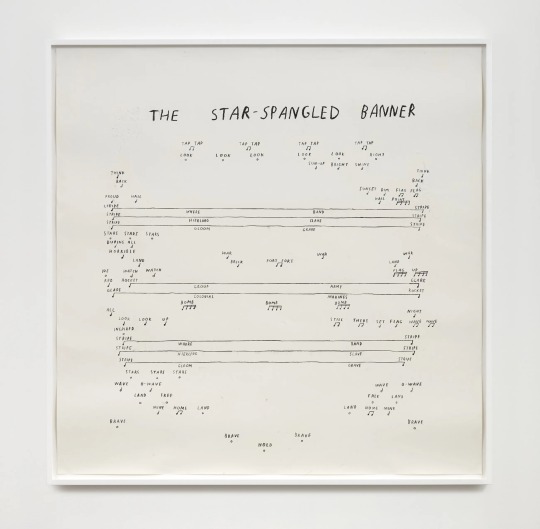
Christine Sun Kim, The Star-Spangled Banner (Third Verse), 2020, charcoal on paper, overall: 58 1⁄4 × 58 1⁄4 in. (148 × 148 cm) frame: 60 3⁄4 × 60 3⁄4 in. (154.3 × 154.3 cm), Smithsonian American Art Museum, Museum purchase and purchase through the Asian Pacific American Initiatives Pool, administered by the Smithsonian Asian Pacific American Center and through the Julia D. Strong Endowment, 2021.31.1, © 2020, Christine Sun Kim. Courtesy of the artist and François Ghebaly, Los Angeles
Christine Sun Kim (born 1980) is an American sound artist based in Berlin. Working predominantly in drawing, performance, and video, Kim's practice considers how sound operates in society. Musical notation, written language, American Sign Language (ASL), and the use of the body are all recurring elements in her work. Her work has been exhibited in major cultural institutions internationally, including in the Museum of Modern Art's first exhibition about sound in 2013 and the Whitney Biennial in 2019. She was named a TED Fellow in both 2013 and 2015, a Director's Fellow at MIT Media Lab in 2015, and a Ford Foundation Disability Futures Fellow in 2020. Via Wikipedia
16 notes
·
View notes
Text
Student Activism and Campus Protests: A History of Change and Resistance
Recent Protests Against War in Gaza
The protestors at Columbia University now occupy Hamilton Hall and have started to barricade themselves inside.
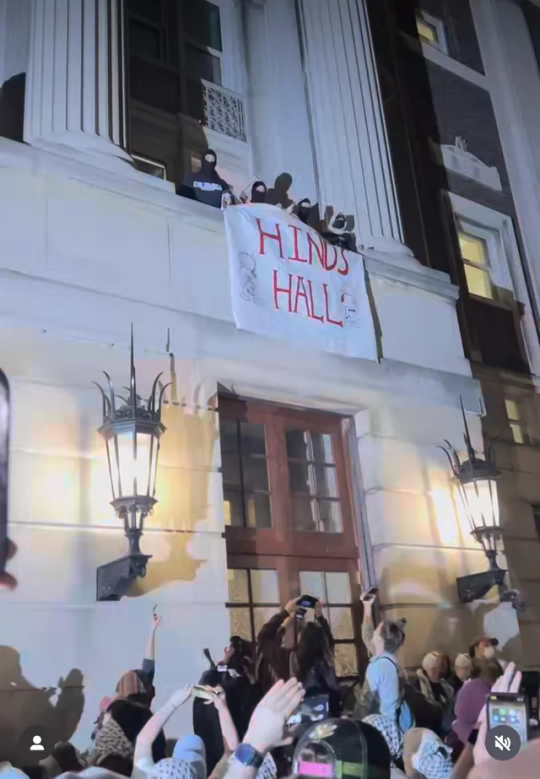
In the wake of ongoing conflicts in Gaza, a significant wave of protests has swept across dozens of U.S. college campuses, where students are urging their institutions to sever financial ties with Israel. These protests, primarily targeting universities with substantial endowments, call for the divestment from Israeli companies and the broader U.S. arms industry. Such movements are not new but are part of a long-standing tradition of campus activism. For instance, there have been protests at Columbia University that took place in 1968, 1972, 1985, 1992, and 1996.
In 1968, Columbia University saw major protests over the Vietnam War and racial discrimination, including a notable incident where students barricaded a dean inside a building, leading to violent clashes and over 700 arrests. Another protest later in the year involved 250 students occupying a hall, which ended with police intervention after 10 hours.
Continuing anti war sentiments in 1972 led to significant protests at Columbia, where students used classroom furniture to barricade themselves, ending peacefully without injuries or arrests after a week with police clearing the site through underground passages.
In 1985, Columbia students protested the university's investments in apartheid South Africa by chaining the doors of Hamilton Hall for three weeks, culminating in a moral victory when the university later divested from American companies operating there.
The 1992 student blockade at Columbia protested the conversion of the Audubon Theater, where Malcolm X was assassinated, into a research complex, highlighting student commitment to preserving significant historical sites, though the protest lasted less than a day.
In 1996, about 100 Columbia students, including some on a hunger strike, occupied Hamilton Hall to demand an ethnic studies department; while their immediate demands were not met, the university later created space for Asian and Hispanic studies, leading to the establishment of the Center for the Study of Ethnicity and Race.
These episodes highlight the enduring nature of student activism, often acting as a catalyst for institutional change and reflecting broader societal conflicts. However, these current demonstrations have stirred controversy, being labeled as "antisemitic" due to their critical stance against Israel. This has led to a heightened response from campus authorities, including threats of academic penalties and arrests, coupled with an increasing police presence, which has escalated tensions and brought national attention to the students' cause.
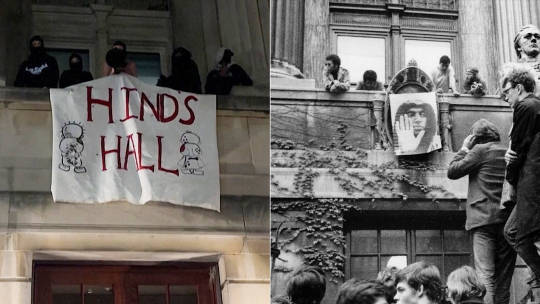
This leads me to question: Are these protests truly fueled from a place of antisemitism, or is this simply fear-mongering circulated by those who support Israel?
Antisemitism is defined as hostility to, prejudice, or discrimination against Jews. Criticism of Israel, like criticism of any other country, can be a part of legitimate political discourse. It becomes problematic when criticism of Israel is used as a guise for antisemitism, when it denies the Jewish people their right to self-determination, employs antisemitic stereotypes, or holds Israel to standards not expected of other countries. Thus, simply disagreeing with the policies of the Israeli government is not inherently antisemitic, much like criticizing the policies of any country does not automatically imply prejudice against its people. However, the context, content, and intent of the criticism are crucial in determining whether it crosses the line into antisemitism.
In this case, since 7th October 2023, more than 34,000 people have been killed in Gaza and approximately 77,000 have been injured by Israel.
By protesting American policy supporting Israel, these students are not showcasing acts of antisemitism. We must hold Israel to the same standards of other countries. The American public is begging for their voice to be heard. War is not the answer. It has never been the answer. Free Palestine.
#free palestine#free gaza#america#united states#columbia university#student protests#protest#activism#activist
5 notes
·
View notes
Text

First and foremost to get it outta my system, fuck orbitaldropkick for being a piece of shit hack-writer with zero tact. Fiction and narrative do not defacto endorse the most horrible actions or events on earth, but you have no fucking tact in your writing of or depiction of said events- it's crassness for shock value and it's gross.
You might know kill six billion demons and might even still be reading it- if you do, I suggest you don't! If you don't read it, don't start! The idea can't poison you if you don't imbibe it, and the most recent update was very much a reason for me to hate the fucker more than I already did for being an abrasively smug prick. CW for rape if you ignore the prior warning and go to his site anyway.
"But its been years and im so invested-" Shut the fuck up, if an apple rots you don't keep the mush.
You may be asking yourself what you ought to maybe consider reading or engaging with instead that maybe handles shit more tactfully, or overall embodies the spirit of killing god that isn't tied to tom parkinson-morgan or his works (ksbd, icon, lancer, unnamed cyberpunk), and I'm compiling a list below:
Comics:
Souls Foreclosed- Cast of devil-endowed trans people literally combatting society, the church and vampires that rule it, and tbqh god himself. Extremely good and creative as fuck in it's visual design.
Phototaxis of a Fighter- Underground boxing with a full cast of queer and ace rep, PLEASE read this shit 'cause I'm tired of people sleeping on such a banger comic.
Scam the Gods- Dreamlike and utterly surreal comic focused on committing to the title. As with the above fuckin read this shit if you want to feel caught in a dream you can't quite wake up from, quit sleeping on the comic and sleep inside it.
Novels and TTRPGS:
Benjanun's Machine Series- hoohboy there's a lot here please let her explain it better than i can ;///;
Gubat Banwa + Maharlika- TTRPG steeped in southeast-asian culture with mechanics emulating the snappy combat of martial arts movies and godkilling™ (mecha robo for the latter of the two), and with far greater understanding of the cultures it references than those Tom outright rips from.
Devil, Aim for Me- If there could be a oneshot/single system to encapsulate the vibe of Souls Foreclosed, this'd be it- Ran a game several years ago centered around a post biblical rapture world with the goal of crawling out from the ash to kill god, so I'm including it here as well worth your time.
tl;dr fuck you abbadon, i wish you'd go back to being john neverpost and fucking stay that way you cunt
32 notes
·
View notes
Text
Build Back Better Colleges
In the wake of last week's anti-affirmative action decision, Larry Summers wrote an editorial urging that elite colleges respond by becoming less exclusive. Grow. Admit more students. Add more programs. Invest in education.
I could not agree more. And it's something we need to do on all fronts. Yes, the Ivy Leagues should get bigger. But the great public universities in our country should also be expanded on. The University of California system is one of the great engines of economic mobility and advancement in large part because it is huge. But there has not been a new UC campus created in almost twenty years, and UC-Merced is by far the smallest undergraduate campus in the entire system. You have to go back another forty years for the most recently established UC campuses which are of a size comparable to the system average (both UC-Santa Cruz and UC-Irvine were established in 1965). Why not create a new UC in Sacramento, or in the Bakersfield or Modesto? Or hell, put one up in Redding?
Higher education is in a weird moment where there is simultaneously an approaching demographic cliff that will obliterate demand at the bottom end of the scale even as student demand for the top schools surges to unprecedented heights. I don't have answer to the former problem. But the only way to respond to the latter is to increase capacity in "elite" institutions, and that in turn will take a massive investment in education to absorb the tidal wave of demand.
It's not enough for colleges to exist -- we probably have enough dorm room beds already in the United States. They have to be great colleges -- colleges that are well-supported and well-endowed and well-resourced so that the students who attend can afford to go and know that they're getting an excellent education from top-level professors. Certainly, the far longer-standing crisis in graduate education means we don't lack for supply in the last category. But we also know there's a huge difference between setting up a new fly-by-night program that exists just to exist, versus actually investing in new educational opportunities. UC-Irvine Law School immediately stormed to a top-50 ranking from nothing when it was founded in 2006 because, unlike most other newly-established law schools, it boasted a level of public and private investment that showed it was serious about being a serious institution.
The problem we're experiencing is not actually one of bad minority students taking away the rightful spoils of White and/or Asian students. The problem is one of meritocracy and equalization paired with scarcity: an explosion in students applying for (and being qualified for) "elite" positions with no increase in the number of elite positions available.
Equality means that more and more people have at least nominal potential access to elite institutions, which means that it's harder for any one individual person to access these institutions, which results in a terrifying and never-ending arms race to become (and stay as) one of the elect few, which generates new inequalities in terms of who has access to the resources that allow them to win the arms race and who doesn't.
In a very basic way, it is true that "equality" is the problem here. In the old days, if you were an elite, you could be pretty confident your kids would stay elite so long as they were basically competent: with relatively few people who could or were allowed to compete for prestigious social positions, being "okay" generally was good enough.
Once the doors are flung open, though, you're competing against everyone, and now it's off to the races. Today, we don't want to say that "only the children of elite university attendees should attend elite universities"; we want to say that every child should have an equal chance to join the Talented Tenth. But saying that means that, if you're in the top 10% right now, you're committing to the notion that your kid should only have a 10% chance of staying in your social strata, and that's a very unpleasant thought that only grows worse as the gap between the top 10% and everyone else increases. But unless your solution is "we should go back to reserving elite roles for the current incumbents", this is necessary feature of an egalitarian social sphere combined with extremely limited "elite" social roles. So if we're not going to accept going back to overt exclusion, we need to tackle the omnipresence and power of scarce "elite" roles. The only actual way to ease the sting of redistributing the pie is growing the pie. The actual, actual villain here is terrifying inequality -- the massive and growing gap between the power, influence, autonomy, and life chances of the elites versus everyone else, which makes so that not getting into Harvard feels like a death knell.
The only way to ease the sting of redistributing the pie is growing the pie. If you're panicking at the seemingly impossible task of seeing yourself or your child admitted to an elite institution, ending affirmative action will not help you. Nor, if we're being honest, will ending legacy admissions. The only thing that will make a difference is a true commitment to investing in education to such a degree that there is space for each of our outstanding youth to receive an outstanding university experience. There's no shortcut, no scapegoat that can substitute for that.
We are blessed as a nation right now to have surfeit of incredibly talented, hard-working, diligent young people who are eminently qualified to attend a great university and deserve to have that chance. The only thing standing in the way is our own willingness to pay for it.
via The Debate Link https://ift.tt/TOEo6B0
18 notes
·
View notes
Text
Jan312024
Now Harvard DEI Chief Accused of Plagiarism
In case anyone thought plagiarist, former Harvard President, and ludicrous moonbat Claudine Gay was an exception to the rule, it appears Harvard’s chief diversity and inclusion officer is also a plagiarist:
Sherri Ann Charleston, appears to have plagiarized extensively in her academic work, lifting large portions of text without quotation marks and even taking credit for a study done by another scholar—her own husband—according to a complaint filed with the university on Monday and a Washington Free Beacon analysis.
The complaint makes 40 allegations of plagiarism that span the entirety of Charleston’s thin publication record.
You can’t expect better than Claudine Gay with Affirmative Action hires in charge of hiring:
Charleston was the chief affirmative action officer at the University of Wisconsin-Madison before she joined Harvard in August 2020 as its first-ever chief diversity officer. In that capacity, Charleston served on the staff advisory committee that helped guide the university’s presidential search process that resulted in the selection of former Harvard president Claudine Gay in December 2022, according to the Harvard Crimson.
Head of the National Association of Scholars Peter Wood characterizes Charleston’s scholarship as “research fraud pure and simple.” But you can’t say she hasn’t been doing her job, which is to institutionalize hatred of whites:
Since 2020, her office has pumped out a stream of materials that bemoan the “weaponization of whiteness,” discuss the ins and outs of “white fragility,” and urge students to “call out” their peers for “harmful words.”
“Harmful words” can be presumed to mean speech that does not comply with leftist doctrine grounded in DEI and Critical Race Theory.
Harvard’s commitment to this toxic dogma at the expense of integrity and competence is producing consequences:
The Dana-Farber Cancer Institute, one of Harvard Medical School’s three teaching hospitals, announced in January that it would retract six papers and correct dozens more after some of its top executives were accused of data manipulation. That news came on the heels of a viral essay in which Carole Hooven, a Harvard biologist, described how she had been hounded out of a teaching role by her department’s diversity committee after she said in an interview that there are only two sexes.
Serious medical research cannot be conducted where facts are forbidden in the name of politics.
The school is also facing an ongoing congressional probe over its handling of anti-Semitism and its response to the plagiarism allegations against Gay, which Harvard initially sought to suppress with legal saber-rattling.
Harvard has an endowment of $51 billion, but its most valuable asset has been its reputation for excellence. This reputation has been exchanged for laughing stock status in the name of moonbattery.
On tips from Ed McAninch, Steve D, and Mr. Freemarket.


At 60 years old I decided to get a degree. I never finished high school and getting a formal education was always on my bucket list. After helping all four of my kids get their BAs it seemed only fair that I get one of my own.
I was surprised to find that African Americans had their own separate degree plan within the UT university structure. They had separate study areas, separate dining rooms, separate fraternal organizations and degree requirements custom made to insure they passed all their core requirements with a 3.7 average. there was a list of professors guaranteed to pass them with a 3.7 average for doing virtually no written course work. All they had to do was show up for 50 percent of the lecture. If you check "Rate My Professor" on the internet you will see that there are buzz words used to let a potential student know how little would get them a passing grade.
In the case of these professors simply ask yourself how they would have been treated had they been white or Asian? They would have been relieved of their duties and sent packing. No doubt about it. There were of course exceptions but the system was designed to grease the skids for minority students.
4 notes
·
View notes
Text
My Changes to Marvel and DC's Monkey Kings
Sun Wukong has appeared in the published works of two major US comic book companies. The Marvel version is a queue braid-wearing crime lord from modern Beijing, China who is endowed with the powers and memories of the original Monkey King. He is a boastful, greedy, and thoroughly unlikable background character throughout his entire arc (2011-219), and his story ends with a rushed, pointless self-sacrifice during a battle. The writers involved were so painfully unfamiliar with the literary hero, that the abilities of his comic book counterpart are wildly inconsistent, even within the same issue of a single comic, and especially throughout his appearances in other storylines. Marvel's Sun Wukong is a prime example of people trying and failing badly to adapt a work from a culture that they clearly know nothing about.
The most recent DC incarnation of the Monkey King (2021-present) [1] has the benefit of Chinese-American creators, but it's still not a great adaptation. Sun Wukong is depicted as a staff-wielding, armor-wearing jokester even centuries after the journey's end, unlike the literary character which becomes an enlightened Buddha. And the main focus of the series, his son the Monkey Prince (here and here), is just a boring, inferior copy of the original, with the same exact abilities and weaknesses. His human mother is never mentioned (only adoptive parents), nor the reason why Sun would abandon his family. DC's Monkey King has largely been absent from the overall story as he was banished to the Phantom Zone by the New God Darkseid after a battle in heaven.
Here, I'd like to present the changes I suggested in my respective reviews of these comics. I feel they are far more faithful to the original narrative.
I. Marvel's Sun Wukong
(See here for background)
I would completely do away with the queue-wearing crime lord and replace him with a modern spirit-medium (Chinese: Jitong, 乩童; Hokkien: Tangki, 童乩; literally: “divining child”) from Chinese folk religion. Such individuals are believed to channel the spirit of the “Great Sage Equaling Heaven” (Qitian Dasheng, 齊天大聖), the celestial title of Sun Wukong. While inhabited by the monkey god, the spirit of the human host is believed to reside in heaven or some temple-based holy object (Chan, 2006, pp. 59-60; Graham, 2013, p. 330). Therefore, the person would be for all intents and purposes the Monkey King for the duration of the story. As a medium, the character wouldn’t wear a superhero costume. Instead, he would be bare-chested apart from a ritual stomacher (dudou, 肚兜) and a tri-panel dragon-tiger apron (longhu qun, 龍虎裙) over everyday pants and shoes (or no shoes). Such ritual attire is usually decorated with auspicious symbols and, sometimes, the Chinese name of the deity, in this case the Great Sage (fig. 1).
I would also like to make some changes that might seem weird for an adaptation of Sun Wukong. But I’m torn between pandering to the wants of comic book fans and my desire to portray an authentic East and Southeast Asian spirit-medium. The former would involve the character wielding the magic staff, but in the case of the latter, I’ve noticed that few mediums involve the polearm in their public performances. Those who do only use it to enhance the theater of their portrayal of the Great Sage. The weapon serves no ritual function. The latter would involve the character wielding the “Five Treasures of the Spirit-Medium” (Jitong wubao, 乩童五寶), a set of ritual weapons consisting of a spiked ball on a rope, a spiked club, a sawfish nose sword, a crescent moon ax, and a double-edged sword engraved with seven stars (fig. 2) (Chan, 2006, p. 73). Mediums use these weapons during a ritual dance in which they inflict wounds on their body. This self-mortification is believed to serve two purposes. One, holy energy from the weapons help the medium prepare “for a particularly difficult battle” by “supercharg[ing] him with spirit power” (Chan, 2006, pp. 108-109). And two, the resulting holy blood—for it is considered the blood of the god, not the host—is believed to have demonifugic properties. It can be used to write paper sigils commanding heavenly forces to attack demonic spirits (Chan, 2006, p. 108). Now, I’ll admit that this would no doubt be off-putting to the average comic book reader. So herein lies the dilemma. The only compromise that I can think of would be to use them both but more so in one case and sparingly in the other. An enchanted brass pole, like those used by Great Sage mediums during performances (fig. 3 & 4), would be the character’s main weapon. But when he runs into trouble, he could summon the aforementioned treasures to “supercharge” himself, and, if needed, he could draw blood in order to call on heavenly forces. This leads me to my next change.
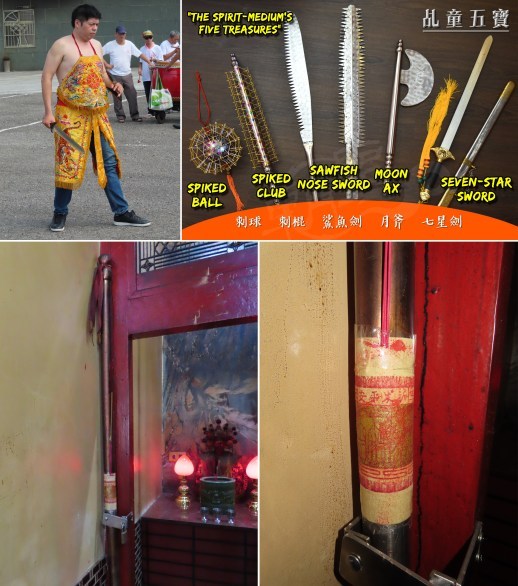
Fig. 1 – An entranced spirit-medium wearing the stomacher and apron (larger version). Picture taken by me in Tainan, Taiwan. Fig. 2 – The “Five Treasures of the Spirit-Medium” (larger version). Found on Facebook and slightly modified. Here, the original biological sawfish nose sword (photo by me) has been replaced by two modern, metal, single and double-edged versions. Fig. 3 – An example of a brass pole used by Great Sage mediums (larger version). Fig. 4 – A detail of joss paper and joss sticks attached to the pole (larger version). Pictures taken by me in Jiayi, Taiwan.
Despite the Monkey King’s immeasurable strength in Journey to the West, I wouldn’t want to make the character an unstoppable powerhouse like, say, the Sentry. I would instead make him moderately powerful for a few reasons. First, there’s no fun in an invincible hero who one-shots all his foes; there has to be some struggle in order to make the character more interesting and relatable. Second, spirit-mediums only protect their local community and, therefore, not an entire country or planet like more powerful characters. And third, there are many Great Sage spirit-mediums across East and Southeast Asia. What’s interesting about this concept is that each medium is believed by their respective communities to be the Great Sage. For example, one very small temple I visited in Taiwan has an astounding seven Great Sage mediums. This means that, if a particularly nasty evil befalls the earth, an entire army of Great Sages, who in turn command their own heavenly forces, can be called on to deal with the villain! This would not only be authentic, but also reference Sun Wukong’s magic power of creating endless doubles of himself. [2] And the best part? The story could follow a series of different spirit-mediums in different countries. So the “character” wouldn’t be limited to a single person. The medium could be Chinese, Taiwanese, Malaysian, Singaporean, basically any person of Chinese descent who practices spirit-mediumship. And they can be young, old, and even women, too. That’s right, there are female Great Sage mediums! (video 1).
youtube
Video 1 – A female Great Sage medium in Chinese opera-inspired attire.
II. DC's Monkey King and Monkey Prince - Part I
(See here for background)
I would do away with the Monkey King taking a Chinese wife centuries after he became a Buddha. Instead, the son could be born during the Tang Dynasty to Princess Iron Fan, the rakshasi wife of the Bull Demon King. Though seemingly impossible, there is precedent for this idea. An early 15th-century zaju play predating the novel describes Sun Wukong’s delight upon learning that the Princess is unmarried (Ning, 1986, pp. 139-140). He then resorts to seduction in an attempt to gain the iron fan needed to extinguish Flaming Mountain. For example, he recites a poem to her chocked full of sexual innuendo: “The disciple’s not too shallow. / the woman’s not too deep. / You and I, let’s each put forth an item, / and make a little demon” (Ning, 1986, p. 141). In addition, a 17th-century sequel to Journey to the West even describes the Monkey King having a number of sons with Princess Iron Fan. He faces one of his offspring, King Pāramitā (Boluomi wang, 波羅蜜王), during a final battle between all the armies of the world (Dong, Lin, & Schulz, 2000, pp. 123-124). In our story, the son could have been conceived during ch. 60 of the original novel when Monkey shares a tender moment with the Princess while disguised as the Bull Demon King (Wu & Yu, 2012, vol. 3, p. 144).
Being a half-monkey spirit-half-rakshasa demigod, I’d like to think the Prince’s base form would be more monkey-like. This would mean any lapse in concentration would cause him to revert to this state instead of a human form like in the original comic story.
I can already hear someone ask: “How can the Monkey Prince still be a teenager by the start of the story if he was born hundreds of years ago?” Well, this leads me to my next change. Instead of Zhu Bajie, it would make much more sense for his teacher to be the Bodhisattva Guanyin. After all, she tutors the children of several characters from the novel, including Muzha (木吒), 2nd son of Heavenly King Li Jing, and Red Boy (Hong hai’er, 紅孩兒; a.k.a. the “Child Sudhana”, Shancai tongzi, 善財童子), son of the Princess Iron Fan and Bull Demon King. [3] Already having a son under the goddess’ tutelage would make it easier for the Princess to send another child to learn from her. Also, Guanyin helped subdue both Monkey and Red Boy with golden fillets (Wu & Yu, 2012, vol. 1, pp. 316-320; vol. 2, pp. 251-252). Perhaps the Monkey Prince has a temper like his father and half-brother, so the goddess would make him wear Wukong’s fillet as it’s no longer needed once the latter attains Buddhahood (Wu & Yu, 2012, vol. 4, p. 383). Most importantly, the bodhisattva lives on the earthly paradise of Potalaka Mountain. The novel explains one day in heaven equals one year on earth (Wu & Yu, 2012, vol. 1, pp. 150 and 167). A similar constricting of time would no doubt happen in Guanyin’s holy land. Therefore, the Monkey Prince would still be a teenager even after hundreds of years have passed on earth.
Next, I would completely do away with the tacky superhero costume. As a disciple of Guanyin, he would just wear a monk’s robe, the golden fillet, and possibly even sport a tiger skin skirt (like his father) since he would technically be a heavenly guardian. There’d be no unnecessary logos, recycled costumes, or cursed sneakers. And the best part, this attire wouldn’t contradict the Monkey Prince’s hatred for superheroes, provided that was still a necessary plot element. Perhaps this hatred could be born from the fact that heroes like Shazam are given their powers (or happen upon them by accident), while the Prince’s abilities are the hard-won product of long years of spiritual cultivation.
My changes are less confident, however, when it comes to naturally fitting the Monkey Prince into existing canon. The first thing that comes to mind would involve the Shazam villain Sabbac, a hellish demon, causing havoc in Philidephlia’s Chinatown. Perhaps his assault could be related to the deplorable reports of Covid-related violence against Asians. A devotee of the goddess could pray to her in their time of need, and then the Monkey Prince is sent in her stead to exorcize the evil. But Shazam arrives while the Prince is battling the demon, and not knowing one from the other, he attacks them both. This might add fuel to the Monkey Prince’s dislike for Shazam.
I personally think the secret teen identity is a bit much. But if it is a necessary plot element, Guanyin could assign the Monkey Prince to watch over her flock in Philadelphia (and the rest of America?), and at the same time allow him to experience a slice of modern teen life. And, again, if necessary, we can borrow from the original story and have the Prince attend high school, where he feels drawn to Billy Batson because of his godly aura. A local earth god (tudi gong, 土地公) and his wife (tudi po, 土地婆) (fig. 5) could be tasked by heaven to act like his grandparents to keep up the appearance of a normal human family.
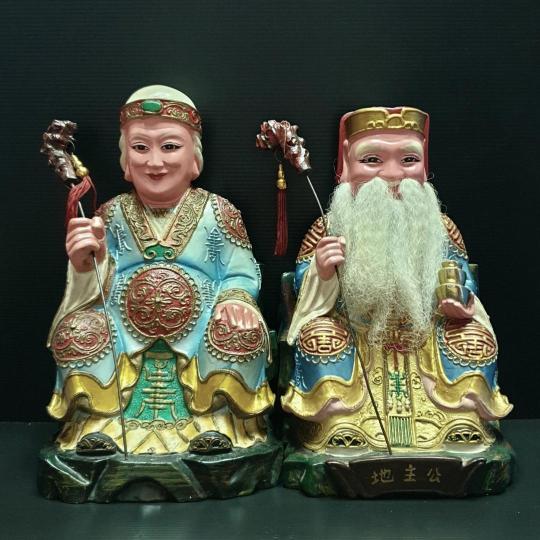
Fig. 5 – Religious statues of the earth god (right) and his wife (left) in my personal collection (larger version).
III. DC's Monkey King and Monkey Prince - Part 2
(See here for background)
I would do away with the Bull Demon King, Princess Iron Fan, and Zhu Bajie. Instead, the original heavenly army would meet the brunt of Darkseid’s forces upon their arrival. Playing off of the comic story, and acknowledging my own changes, Guanyin would send her disciples Muzha and Sudhana to take part in the battle. And taking more inspiration from the comic story, I would also have Erlang arrive but instead go toe-to-toe with Darkseid. The “Small Sage” (Xiaosheng, 小聖) is after all the only god to truly defeat the Monkey King, so he would be a worthy opponent. But lets say the invader somehow gets the upper hand, and so I would pay homage to the original novel by having the Jade Emperor call on Gautama Buddha to intervene. But he instead sends the Buddha Victorious in Strife, who obviously has experience with causing havoc in heaven. The Monkey Buddha shows off his power by easily nullifying the attacks of Darkseid’s army and even negating the omega beams by turning them into a shower of flowers, reminiscent of ancient biographies of Gautama Buddha:
The host of Mara hastening, as arranged, each one exerting his utmost force, taking each other’s place in turns, threatening every moment to destroy [the Buddha, but] … Their flying spears, lances, and javelins, stuck fast in space, refusing to descend; the angry thunderdrops and mighty hail, with these, were changed into five-colour’d lotus flowers…” (Beal, 1883, pp. 152 and 153).
I could borrow still more from the novel and have the Buddha Victorious in Strife make Darkseid a wager, recalling Gautama Buddha’s bet with Sun Wukong involving his cloud somersault. But instead of betting that he can’t leap from his palm, the Monkey Buddha makes a wager involving the boom tube.
This is where I run into trouble, though. I don’t know enough about the cosmic hierarchy of the DC universe to go past this point. I say this because Darkseid is considered a “conceptual being” that lives outside of time and is capable of creating avatars of himself (Darkseid (New Earth), n.d.). I’m not sure how this stacks up against DC’s concept of an enlightened being. But from a Buddhist cosmological perspective, I believe the Buddha would be more powerful because he has achieved “nirvāṇa” (Ch: niepan, 涅槃) and broken free of the wheel of rebirth (Buswell & Lopez, 2014, pp. 589-590). However, the New God, even as a deva capable of creating avatars, would still be subject to the “Desire realm” (Sk: kāmadhātu; Ch: yujie, 欲界) of Saṃsāra (Ch: lunhui, 輪迴; shengsi lunhui, 生死輪迴) (Buswell & Lopez, 2014, pp. 230-233 and 411). Therefore, I imagine the Buddha Victorious in Strife plays a trick on Darkseid and is able to trap or even destroy his avatar. As mentioned above, this would make the real villain (in his home dimension) think twice before tangling with Monkey again.
I’m now obligated to insert my concept of the Monkey Prince into the story. Since he’s born during the Tang Dynasty (618-907 CE), he would be alive during the attack on heaven. But as a young, inexperienced disciple, he wouldn’t take part in the battle, just hear news of it from Guanyin during the event and stories of what happened from his half-brother Sudhana after the fact. This way, the Monkey Prince would remember the invasion and yearn to do his part when Darkseid reappears in the present.
Lastly, I feel it’s necessary to give the character a name. The comic calls him the “Monkey Prince” in his hero form and “Marcus” in his human form. I think Sun Taizi (孫太子), or “Prince Sun”, is a great name as it plays off of San Taizi (三太子), the “Third Prince” (fig. 6), one of Nezha’s titles in Chinese folk religion. (Fun fact: This deity serves as a heavenly vanguard in Sun Wukong’s own religion.) Borrowing from existing religious beliefs sparks the titillating idea that Sun Taizi’s heroic deeds would earn him devotees. Beyond his own continuing spiritual cultivation, he would grow in strength as more and more believers pray to and leave him offerings! This wouldn’t be the first time a monkey god is worshiped in America.
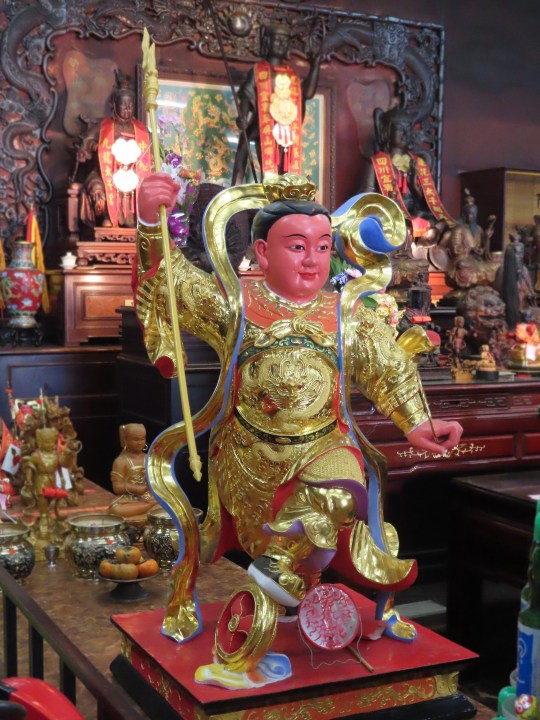
Fig. 6 – A religious statue of San Taizi, the “Third Prince”, from the Nine Dragons Prince Temple (Jiulong taizi gong, 九龍太子宮) in Tainan, Taiwan (larger version). Photo taken by me.
Notes:
His wager with the Buddha is briefly shown in Lucifer #75 (2006).
For example, chapter two reads:
Plucking a handful of hairs from his [the Monkey King’s] own body and throwing them into his mouth, he chewed them to tiny pieces and then spat them into the air. “Change!” he cried, and they changed at once into two or three hundred little monkeys encircling the combatants on all sides. For you see, when someone acquires the body of an immortal, he can project his spirit, change his form, and perform all kinds of wonders. Since the Monkey King had become accomplished in the Way, every one of the eighty-four thousand hairs on his body could change into whatever shape or substance he desired (Wu & Yu, 2012, vol. 1, p. 128).
3. Muzha (a.k.a. Hui’an, 惠岸) is already Guanyin’s disciple by the start of Monkey’s rebellion. In ch. 6, the goddess sends him to help in case his skills are needed (Wu & Yu, 2012, vol. 1, p. 175). Red Boy is taken in by her at the end of ch. 42 and beginning of ch. 43 (Wu & Yu, 2012, vol. 2, pp. 251-252).
Sources:
Beal, S. (Trans.). (1883). The Fo-Sho-Hing-Tsan-King: A Life of Buddha by Asvaghosha Bodhisattva. Oxford: Clarendon Press. Retrieved from https://archive.org/details/foshohingtsankin00asva/mode/2up.
Buswell, R. E., & Lopez, D. S. (2014). The Princeton Dictionary of Buddhism. Princeton, NJ : Princeton University Press.
Chan, M. (2006). Ritual is Theatre, Theatre is Ritual: Tang-ki, Chinese Spirit Medium Worship. Singapore: Wee Kim Wee Centre, Singapore Management University.
Dong, Y., Lin, S., & Schulz, L. J. (2000). The Tower of Myriad Mirrors: A Supplement to Journey to the West. Ann Arbor: Center for Chinese Studies, The University of Michigan.
Graham. F. (2013). Vessels for the Gods: Tang-ki Spirit Mediumship in Singapore and Taiwan. In J. Hunter & D. Luke (Eds.), Talking With Spirits: Interdisciplinary Approaches to Spirit Mediumship (pp. 327-348). Brisbane: Daily Grail Press.
Ning, C. Y. (1986). Comic Elements in the Xiyouji Zaju. (Doctoral dissertation). Available from ProQuest Dissertations and Theses database. (UMI No. 8612591)
Wu, C., & Yu, A. C. (2012). The Journey to the West (Vols. 1-4). Chicago, Illinois: University of Chicago Press.
#Sun Wukong#Monkey King#Monkey Prince#Journey to the West#Marvel#DC#Marvel comics#DC comics#Lego Monkie Kid#JTTW#Youtube
62 notes
·
View notes
Text
LIVING WITH A SMALL PENIS
I grew up in a small community. I had one brother and two sisters. My first humiliating experience and realization of having a small penis was when I was 13 years old. I was in 7th grade. One of my classes was physical fitness. Because 7th grade was puberty age level we were required to shower after class. The problem was it was an open room with 10 to 15 shower heads. Which meant for the first time in my life I had to shower with other boys. The first day I had to shower I was surprised that all the other boys penis’s were much bigger than mine. They also already had pubic hair growing on their body. I had no pubic hair and a much smaller penis. Some of the other boys were whispering and laughing as they looked at me. I was so embarrassed and humiliated that I hated that class the rest of the School year. So that was the first time I realized I had a small penis. The second experience I had was about a year later. My parents were having one of their many arguments. They were both saying very hurtful things to each other. I heard my father say to her “You never want to have sex with me”. She then replied back to him “ Well its because your dick is so small I cant feel it thats why I don't like having sex with you” So that stuck in my mind from that time on. I thought that is probably why my penis was so small was because I am my father's son. So I to must have inherited his small endowment
So after I grew up and finished High School I joined the Army. I also had the same experience in the Army that I had in 7th grade. There were know private showers. So again I had to suffer the humiliation of being the guy with the small penis, especially when it came to the black guys. So while I was stationed in South Korea. I met a Korean girl while I was there and ended up asking her to marry me. We got an apartment off base and started to live together. Well one day after I got off duty I went back to our apartment. When I got there she wasn't there. I was so worried because she didn't come home for three days. She hadn't told me anything beforehand. So when she finally came back I was very upset that she hadn't told me where she was going. Well come to find out she was afraid to tell me that my penis was to small. So she had some kind of surgery that made her pussy tighter. So I was shocked but I got over it. Eventually my tour of duty was over in Korea and we went back to the U.S. I also got out of the Army and we went back to my hometown. A year later she gave birth to our first daughter. Well after giving birth her pussy lost the tightness. So when I was in her I felt it was like throwing a tiny hot dog down a hallway. One night we were watching tv in bed. I asked her if she had ever had sex with a black man before. She said “ No, but she had always been curious about it” She told me one of her Korean girlfriends in Korea had told her that she had sex with a black man before. She said her friend told her the sex was so good because their penis’s were so big and they could fuck a long time before cuming. So I figured she was interested in black men. So to test this I rented a porn video with hung black men having sex with an Asian woman. After we were done watching it I reached down and felt her pussy. She was so hot and wet. I made sure to lick her to orgasm that night because I knew my little shrimp dick was going to give her an orgasm. So I became very skilled at licking pussy.
About a year later she got a part time job at a local Walmart. She worked evening from 5pm until 11pm. I never knew what time she would get home after her work. I had to get up early to go to work. So I would go to bed early. She always slept in one of the kids room as not to bother me when she got home from work. I didn't know that she met a young 20 year old black man at her work. After work they would sit in his car and talk. Which eventually led her to sucking him off in his car. Which eventually led to her going back to his apartment where they were having sex before she would come home. Well I noticed she didn't want sex with me much around that time. So I began to have my suspicions that she was cheating on me. Ao one night when she wasn't working I asked her to be honest with me. I told her know matter what she told me I wouldn't get mad. So I flat out ask her if she was cheating on me with someone. She reluctantly told me yes, she had met a young black man. She told me she didn't have feelings for him, but she did enjoy the sex with him. She told me she couldn't enjoy sex with me because my penis was much to small. So I had a decision to make, what to do about this whole situation. So my solution was to allow her to cuckold me. I told her that she could cuckold me as long as from that time on I be allowed to meet the guy and that she wouldn't meet him without my knowledge. So she ended up quitting her job at Walmart and didn't meet her Walmart lover anymore. The next guy she met was also black and an ex-boyfriend of my younger sister. His name was Tony and apparently hung like a horse. In fact the first night she had sex with him she came back bloody and full if his sperm. He was so huge that he actually tore her open even more. That is why her pussy was bloody mixed with his cum. She was worried she was going to be pregnant because it was near her ovulation time. luckily she was not pregnant with his baby. He was her lover for over a year. She had 10 different black bulls over our 18 year marriage. One of her bulls was a co-worker of mine. So eventually some of my other co-workers new he was fucking my wife and that she had cuckold me. One of her black bulls got her into sissifying me. He was over 10 inches long and after he had filled her pussy with his sperm. Him and her would make me lick his cum out of her and then thank him for allowing me to eat his sperm out of her. I believe if they had chastity devices then. They would of had me wearing a chastity device with him holding the key to the lock. Well her last bull was the reason for our divorce. She broke the rule I told her not to break, which was meeting him without my knowledge. I guess maybe she thought since the 10 inch black bull had me sissified. She thought should could now do whatever she wanted and I would go along with it. But I wouldn't go along with it, because I thought if she was hiding it. She might eventually have feelings for him and leave me. I told her not to meet him anymore, but she liked the sex with him to much. So we ended up getting a divorce.
I ended up meeting a Japanese woman from Japan. We hit it off and ended up getting married. After about three years of being married. She told me she didn't enjoy sex with me because my penis was to small. She told me she couldn't feel me inside her. So she stopped having sex with me. Shortly after that on my birthday, she gave me a present. I opened it up and it was a stainless steel chastity device. She told me if I wanted to stay married to her I would have to wear it 24/7. So I reluctantly put it on. It took a while to get used to wearing it. She told me little dick guys like me didn't deserve to be inside a woman. Because we couldn't satisfy a woman and would only frustrate a woman sexually. So she told me I would never be inside a woman ever again. And that the only thing my pathetic little penis would ever be inside of was my chastity device. She said I would eventually forget what it felt like to be inside a woman or have a normal orgasm. She said my chastity was permanent and that I would get used to cuming in my cage. She said she wouldn't cuckold me as long as I was good at licking pussy. She eventually added a urethral tube to my chastity device, so I couldn't get my penis out of the device. When it was time to talk about children. She told me she would do a prostate milking to get my sperm. Then she would have invetro-fertilization to impregnate herself. So that is how we ended up with twins. She really got me into the BDSM lifestyle. She became my Mistress and I became her obedient slave. So now we have been married for 18 years. I have not been inside a woman in over 15 years. And she was right I forgot what it felt like to be inside a woman or being able to cum like a normal man. The fifteen years in chastity has not only made me impotent but shrunk my penis down to a tiny stump. My balls are always aching and blue. Especially after she spanks my balls with her stick. while she spanks my balls she tells me the reason for spanking my balls so hard. Is because my dick and balls are so tiny and pathetic that is my punishment for that. But there is not much I can do about it. Now I know the frustration that my tiny penis gives a woman. Because thats how my balls feel all the time aching and not able to relieve them.
2 notes
·
View notes
Photo

♔ The『𝑅𝑜𝓎𝒶𝓁 𝒞𝒾𝓇𝒸𝓁𝑒𝓉』of bright gold
Rest Lightly on my brow.
I once thought only of the rights
This『𝒸𝒾𝓇𝒸𝓁𝑒𝓉』would endow. ♔
♔ But once I took the crown to which
I had been schooled & bred,
I found it ♔
♔ 『𝐻𝑒𝒶𝓋𝓎 𝑜𝓃 𝓉𝒽𝑒 𝐻𝑒𝒶𝓇𝓉』
though
『𝐿𝒾𝑔𝒽𝓉 𝓊𝓅𝑜𝓃 𝓉𝒽𝑒 𝐻𝑒𝒶𝒹』♔
Independent Roleplaying blog, for a pair of divine, polar opposite, sister princess OCs.
Multiple minor muses & special muses available.
Hosted in a open & expansive fantasy world. 14 countries total. Mostly English/French/Asian based cultures.
Semi-Selective, multi-verse & multi-ship. Adores AUs!
Sensitive & NSFW Topics are Present
21+ Mun: Run Erratically by Chaos Fingers
Like/Reblog if your interested in interactions~
👑『𝒴𝑜𝓊𝓇 𝒫𝒶𝒾𝓈𝑒 𝓂𝑒𝒶𝓃𝓈 𝒩𝑜𝓉𝒽𝒾𝓃𝑔 𝓉𝑜 𝑀𝑒. 𝐼 𝓀𝓃𝑜𝓌 𝓉𝒽𝑒 𝒲𝑒𝒾𝑔𝒽𝓉 𝑜𝒻 𝓉𝒽𝑒 𝒞𝓇𝑜𝓌𝓃 𝓉𝒽𝒶𝓉 𝐼 𝐵𝒶𝓇𝑒』👑
#i finally redid this blogs main promo too#shameless self-promo#[Her Royal Highness personally invites you to Court] Promos#royalty rp#royal rp#fantasy rp#princess rp#fantasy setting#whitecrownsblackthrones#whitecrowns-blackthrones#noble rp#nobility rp
28 notes
·
View notes
Text
(RNS) — With only a couple of months in office, newly elected state Sen. Aisha Wahab introduced a historic bill that could make California the first state to outlaw caste-based discrimination in the United States.
Wahab’s measure has garnered global attention, adding caste — an ancient system of social hierarchy determined by birth — as a protected category in the state’s anti-discrimination laws. Caste discrimination is “a social justice and civil rights issue,” she has said.
Hundreds on Tuesday (April 25) provided testimony for and against this bill as it passed through the Senate’s Judiciary Committee. The bill, known as SB 403, now heads to the Appropriations Committee.
People of South Asian descent, particularly Dalits who are at the lowest strata of the caste system, say the bill is crucial to protect them from discrimination in housing, education and tech sectors. Among the organizations supporting the measure are Hindus for Caste Equity and the Sikh Coalition, which noted that Sikhs know “firsthand the pain and trauma that comes with being repeatedly targeted by hate and discrimination.”
It has also spurred pushback, from groups such as the Hindu American Foundation and the Coalition of Hindus of North America, who say the bill targets Hindus and Indian Americans who are commonly associated with the caste system. The organizations have submitted letters of opposition, saying Wahab’s measure “seeks to codify” negative stereotypes and stigmas that Hindus and Indian Americans face. Critics also say current laws in place offer protections to any kind of discrimination, including caste.
Wahab, the first Muslim and Afghan American elected to the state Legislature, said she’s been the target of Islamophobic threats and has received social media messages calling for her death after introducing the bill. She said members of her staff have been bullied and followed to their vehicles.
Within a day of introducing the bill, “we saw the extent of the hatred,” Wahab told Religion News Service in a recent interview. “We are being vilified,” she said.
As she continues to push for her measure, Wahab is considering whether to be fitted for a bulletproof vest. Though hesitant at first, Wahab said, “It’s getting to that level.”
“Because we struck a nerve, we also know that we identified the problem,” Wahab said.
Wahab’s proposal comes on the heels of Seattle adding caste to its existing anti-discrimination policies, becoming the first city in the U.S. to do so. In January 2022, the California State University system — the largest public university system in the U.S. — passed a resolution adding caste as a category of discrimination.
The university system’s decision came after a 2018 study — conducted by the anti-caste advocacy organization Equality Labs — found that of 1,500 participants who were surveyed, 25% of those identifying as Dalit reported experiencing verbal or physical assault based on their caste. One in 3 Dalit students reported discrimination in educational settings. Critics of the report have raised concerns that the study was not based on a representative sample.
In contrast, a 2020 survey of Indian Americans by the Carnegie Endowment for International Peace found 5% of respondents reported encountering discrimination due to their caste identity, though only 1% of Hindu respondents who identified with a caste identified as Dalit. The vast majority — 83% — of Hindu respondents who identified with a caste identified as General or upper caste. Additionally, most Hindus surveyed did not identify with a caste at all (53%). The study urges some caution around these findings, citing small sample sizes and the sensitive nature of questions around caste.
Meanwhile, the United Nations in 2016 reported that at least 250 million people worldwide still face caste discrimination in Asia, Africa, the Middle East and Pacific regions, as well as in various diaspora communities, according to The Associated Press. Caste systems are found among Buddhists, Christians, Hindus, Jains, Muslims and Sikhs.
As California becomes more diverse, Wahab said, “the deeper and further our laws have to be to protect all people.” Caste discrimination remains taboo and out of the mainstream, Wahab said.
Wahab said she has ensured her measure does not reference any specific religion or a single particular group, but she noted, “We have to be honest that when we talk about specific discrimination, it does happen to a specific group.” Her bill states that “while caste systems are strongly associated with South Asia, similar systems exist in regions including, but not limited to, South America, Asia, and Africa.”
“Caste discrimination is also found across communities of religious practice,” according to the bill.
But to Pushpita Prasad, a board member of the Coalition of Hindus of North America, “this bill targets Hindu Americans” simply by using the word “caste.”
“Caste is associated with Hinduism in the West,” she said.
The Coalition of Hindus of North America is also critical of Equality Labs, one of the sponsors of the bill, and its report, in which a section details how South Asians identify each other’s caste. Identifiers include skin color, noting that “Caste-oppressed peoples are perceived to be darker in skin color than ‘upper’ Caste people from the same region.” Other identifiers include family and social affiliations and food preferences, the latter noting that “many vegetarians are ‘upper’ Castes.”
According to Prasad, skin color “is a completely baseless allegation, and one that they have made up … because it has allowed them to tap into the guilt that lives in the U.S.”
“It would be impossible for anybody to judge their place in the social economic hierarchical structure, either now or through history, based on just skin color,” she added.
To Shreena Gandhi, an assistant professor of religious studies at Michigan State University, seeing Hindu groups say that “this could subject us to more discrimination,” shows her that they know caste discrimination is a problem.
Gandhi is part of the Feminist Critical Hindu Studies Collective that examines how “far-right Hindu nationalist agendas seep into the everyday discourses of North American Hinduism.” It’s what the collective refers to as “Hindu fragility.”
Gandhi said caste discrimination is not just about Hinduism. “It’s a form of oppression that transcends any one religion,” she said.
“We have to confront this legacy of oppression. That’s why as someone who has caste status, I’m for this bill. It’s not about me … It’s about justice,” Gandhi added.
Wahab said she has met with multiple groups opposing her measure but acknowledged it’s likely that they may not come to a place of mutual agreement. Groups against her measure say Wahab has not granted them the same access as she has for those who support her bill.
Even so, Wahab said, “you could also be fundamentally in disagreement with somebody” and still “have respect for them.”
Growing up in the foster care system, Wahab said, she learned to be “sensitive to how other cultures, other languages, other groups, other religions are discussed.”
Wahab and her sister grew up going to a Pentecostal church with the family they were placed with. She remembers celebrating Easter and Christmas, as well as attending Bible study and Sunday school. “I learned a lot. … It was a big part of that family,” she said.
They were eventually adopted by an Afghan and Muslim family. When it comes to religion, “we’re more cultural,” she said. “I identify largely as an Afghan American. I’m very proud of my background and heritage and culture.”
Wahab doesn’t wear a hijab and acknowledges there are expectations “to fit this mold of being either Christian, or Muslim, or Jewish, or whatever the case is,” but she said, “We show up differently, we have different experiences.”
Wahab, who previously served as a council member for the city of Hayward in the Bay Area, said she entered the Legislature intending to tackle the issue of caste.
Wahab has told reporters she’s witnessed this kind of discrimination living in Northern California, where the state in 2020 sued Cisco Systems, alleging a Dalit employee faced caste discrimination when Hindu supervisors cut him out of meetings and failed to promote him.
In another case, a wealthy Berkeley landlord went to prison for sex trafficking young women from India, some who were Dalit.
Wahab recalled meeting a group of people who were in tears, saying that her bill allowed them “to be seen as human.”
“That was profound,” she said.
To Wahab, these stories make it worth it.
She said she’s proud of her bill because it’s ensuring “there’s a level playing field for all people in a certain community.”
“This is standing on the right side of humanity, and the fact that the caste system is over 2,000 years old, and it hasn’t been touched in this critical way, of course it upsets people,” Wahab said. “I think people know that we’re doing the right thing.”
#nunyas news#there's something I didn't think was a issue here in the US#missed that one I suppose#now to see what the rabble rousers have to say
6 notes
·
View notes
Note
‘It changed course, weather balloons don’t do that’
This just in, self proclaimed writer has never heard of one of the earth’s most commonly written about and widely praised natural phenomena, fucking wind.
Onlookers baffled and disgusted at this apparent lack of knowledge and are left wondering if it’s in fact just willful ignorance for the sake of sinophobia.
The Pentagon claims is they know the balloon was military because reasons reasons mumble mumble secret and an Asian reporter was able to get a general to admit at a press conference that it changed course and that's part of their evidence.
Now, I don't know the fullness of the situation. Neither do you because a lot of the details are classified. You say it was the wind, and I say if it really was the wind it would be weird for the Pentagon, which is full of aviators, would not take that into account when making public statements of international importance. In any case, they are firmly of the opinion that it was a military balloon and since they were so obviously irritated that this situation became public knowledge, I'm inclined to believe their sincerity on this matter. (Not all matters. This one.)
For you to extrapolate from that paltry evidence an accusation of Sinophobia shows, to me, that maybe you don't quite think of Chinese people as human, because you can't imagine that racism against them is an important enough issue not to swing around as a cheap rhetorical cudgel, nor imagine that they might have the military ingenuity and gumption to mount such an expedition against the United States. Me, I understand they are human and fully endowed with the same powers that my own government has, though often at divergent funding levels. I also credit them with the courage and determination to undertake such a mission.
And also I'm not self-proclaimed as a writer; my publisher paid several thousand dollars on my behalf to proclaim me as a writer. My sales saved the company. They have a framed copy of Dreadnought on the wall in their office.
Then after that, Kirkus Reviews gave me two starts in one year and also put me on their year-end best list, as did the New York, Chicago, and Los Angeles public libraries, and then I was on every list of transgender literature published for two years, and I was on the Locus long list, and I won Triptee Honors and I was also a Lambda finalist.
6 notes
·
View notes